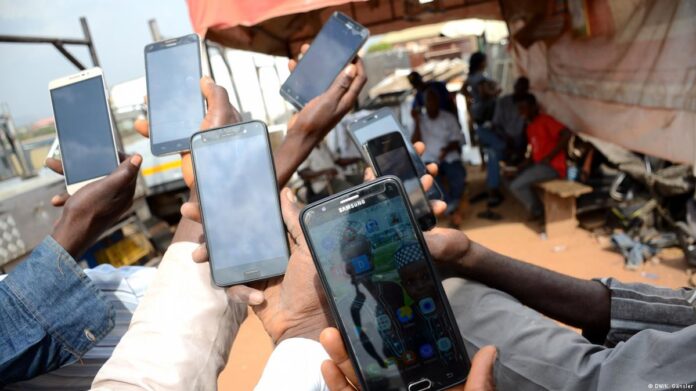In recent years, social media has emerged as a formidable force in Nigeria’s political terrain, transforming ordinary citizens into watchdogs and whistleblowers.
A notable example is the #EndSARS movement in 2020, where young Nigerians leveraged platforms like Twitter and Instagram to expose police brutality and mobilize mass protests against the Special Anti-Robbery Squad (SARS).
This grassroots activism, fueled by real-time updates and viral videos, compelled the government to address long-standing issues of abuse and corruption within the police force.

Another striking instance is the expose on the former governor of Kano State, Abdullahi Ganduje, where videos allegedly showing him accepting bribes went viral.
Despite initial denials and attempts to suppress the information, the relentless spread of these videos on social media platforms kept the issue in the public eye, leading to widespread calls for accountability.
These examples underscore the pivotal role social media plays in exposing political crime in Nigeria. By providing a platform for instantaneous and widespread dissemination of information, social media empowers citizens to challenge the status quo, demand transparency, and drive social change.
In this article, I will delve into how social media is not only exposing political wrongdoing but also mobilizing public opinion to combat it.
Social media’s role in exposing political malfeasance in Nigeria cannot be overstated. Platforms like Twitter, Facebook, and Instagram have become crucial tools for whistleblowers, journalists, and activists to share information that traditional media might overlook or suppress due to political pressures.
The real-time nature of social media allows for immediate dissemination of evidence, making it harder for corrupt officials to cover up their misdeeds.
One prominent example is the revelation of financial irregularities involving the former chairman of the Pension Reform Task Team, Abdulrasheed Maina. Social media platforms were flooded with reports and documents detailing his alleged embezzlement of pension funds.

This public outcry, amplified by the virality of posts and tweets, pressured the government to take action, eventually leading to his arrest and trial.
Beyond exposure, social media is instrumental in mobilizing public opinion and orchestrating collective action.
In Nigeria, social media has revolutionized the view of political activism and accountability. By providing a platform for exposure, mobilization, and sustained advocacy, it has empowered citizens to challenge corruption and demand transparency like never before.
The dynamics of digital activism, characterized by rapid information dissemination and community building, continue to shape Nigeria’s journey towards a more transparent and accountable governance.
As social media usage grows, its impact on Nigerian politics is likely to become even more profound, promoting a more engaged and informed citizenry.




